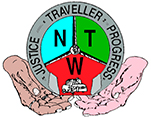Traveller Language
Owen McNeill wrote a book called “Phases of Irish History”. In that he said,
“Today’s Travellers are direct descendants of industrial communities that lived in Ireland in Celtic and pre-Celtic times”.
That is a beautiful theory. The theories come about through our own language. Our language is called various names as according to what familty you belong to. To some it is known as Shelta, Gammon (Gamin) or Cant (Minceirtoiree). Minceir means Traveller and Toiree means talk, so Traveller talk. Cant, or even Minceirs Toiree. A large number of families would call it Gammon (or Gamin) as this is a different dialect or sorts from Cant itself.
Language is the last thing that we have left, that gives us our antiquity. It’s the words that are used. Languages can be cousins to one another like Germanic or English Languages. The closest cousin to our language is old Irish. This was spoken here pre 1200’s. Some of the words used at that time are still used by Travellers today when we speak in our language.
Our own words for a priest and for God have shown up in old documents to be words used in pre-christian Ireland and yet we still use them today. Our tradition was a very oral tradition so there is very little written evidence.
Normally history is about Kings and Queens but there is bits and pieces to show us that Travellers did not just come about in the last couple of centuries. They have existed for a long time, even in the more famous stories particularly the Tain Bo Cooley.
If you read that you will come across these people that are landless people who are not accepted by either Maeve’s army or Cu Culainn. Yet they would fight for any side. These people would be always the best hunters, their tents would be up first, and people were always frightened of them and didn’t want them with them.
There’s lots of stories in Irish Mythology that mention the existence of people that had a diverse identity and culture from mainstream society.
Whether you accept everything I have said or not, you must at least agree that our origins go back a long way and may indeed be “lost in the mists of time”.



